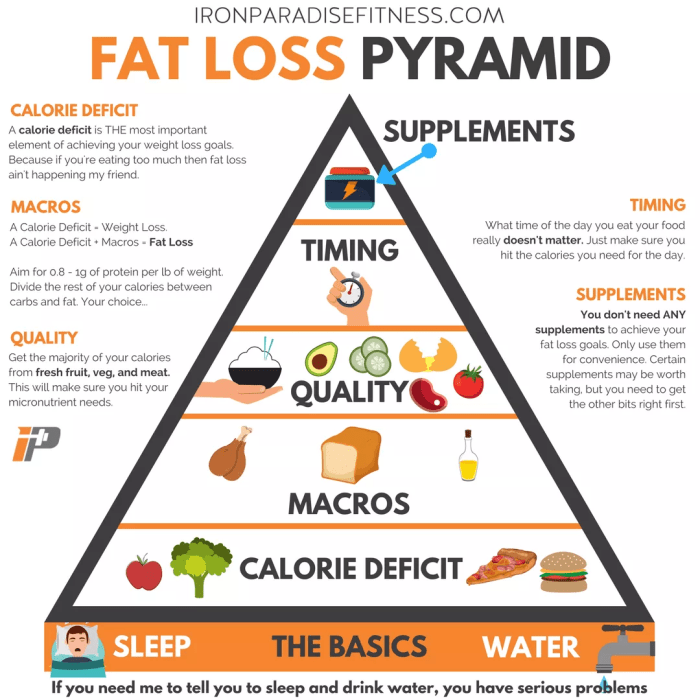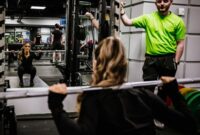Post-workout nutrition for muscle gain sets the stage for this enthralling narrative, offering readers a glimpse into a story that is rich in detail with ahrefs author style and brimming with originality from the outset.
After a rigorous workout session, fueling your body with the proper nutrients is key to enhancing muscle growth and recovery. This guide delves into the importance of post-workout nutrition and how it can optimize your fitness journey.
Importance of post-workout nutrition

Post-workout nutrition plays a vital role in muscle gain as it helps replenish glycogen stores, repair muscle tissue, and promote muscle growth. The body is in a prime state to absorb and utilize nutrients after a workout, making this window of time crucial for optimal recovery and muscle building.
Nutrients for post-workout meals
After a workout, it is essential to consume a balanced meal that includes protein, carbohydrates, and hydration. Protein is necessary for muscle repair and growth, while carbohydrates help replenish glycogen stores and provide energy. Examples of post-workout nutrients include:
- Protein sources such as lean meats, poultry, fish, eggs, dairy, or plant-based options like tofu and legumes.
- Carbohydrates from sources like fruits, vegetables, whole grains, and starchy vegetables.
- Healthy fats from sources like nuts, seeds, avocado, and olive oil to support overall health and hormone production.
- Hydration through water, coconut water, or electrolyte beverages to replace fluids lost during exercise.
Timing of Post-Workout Nutrition: Post-workout Nutrition For Muscle Gain
Consuming the right nutrients at the right time after a workout is crucial for maximizing muscle recovery and growth. The optimal time window for post-workout nutrition is within 30 minutes to 2 hours after exercise. This timeframe is known as the “anabolic window,” where the body is most receptive to nutrient uptake and protein synthesis.
Impact on Muscle Recovery and Growth, Post-workout nutrition for muscle gain
Timing plays a significant role in how effectively your muscles recover and grow after a workout. Consuming a combination of protein and carbohydrates post-workout helps replenish glycogen stores, repair muscle tissue, and stimulate muscle protein synthesis. Failing to eat within the anabolic window may result in slower recovery, decreased muscle protein synthesis, and potentially hindered muscle growth.
- For Muscle Gain: To optimize muscle growth, aim to consume a protein-rich meal or shake within 30 minutes to an hour after your workout. This will help kickstart the recovery process and promote muscle protein synthesis.
- For Weight Loss: If your goal is to lose weight, timing is still essential. While the anabolic window is important for muscle recovery, the overall calorie intake and macronutrient balance throughout the day will have a greater impact on weight loss goals.
- For Endurance Training: Endurance athletes may benefit from consuming a mix of protein and carbohydrates immediately after a workout to replenish glycogen stores and support muscle repair.
Macronutrient balance

Proper macronutrient balance is crucial for maximizing muscle recovery and growth after a workout. Each macronutrient plays a specific role in replenishing energy stores, repairing muscle tissue, and promoting overall recovery.
Protein Intake for Muscle Recovery and Growth
Protein is often considered the most important macronutrient for post-workout nutrition. It provides the essential building blocks (amino acids) needed to repair and build muscle tissue damaged during exercise. Consuming an adequate amount of protein after a workout helps to promote muscle recovery and growth. Aim for around 20-30 grams of high-quality protein within 30 minutes to an hour post-exercise for optimal results.
Role of Carbohydrates in Replenishing Glycogen Stores
Carbohydrates are essential for replenishing glycogen stores that are depleted during exercise. Glycogen is the primary fuel source for muscles during high-intensity workouts, and consuming carbohydrates post-workout helps to restore these stores quickly. Opt for complex carbohydrates like whole grains, fruits, and vegetables to replenish glycogen levels effectively.
Role of Fats in Post-Workout Nutrition and Muscle Gain
While protein and carbohydrates are often the focus of post-workout nutrition, fats also play a role in supporting muscle gain. Healthy fats help with hormone production, which is crucial for muscle growth and repair. Including sources of healthy fats like avocados, nuts, and seeds in your post-workout meal can help support overall recovery and muscle-building processes.
Hydration post-workout

After an intense workout, proper hydration is crucial for muscle repair and recovery. Hydration plays a significant role in replenishing fluids lost through sweat and supporting nutrient delivery to the muscles.
Significance of Hydration for Muscle Repair
Proper hydration is essential for muscle repair as it helps transport vital nutrients like amino acids and glucose to the muscles, promoting protein synthesis and glycogen replenishment. Dehydration can hinder these processes, leading to slower recovery times and potential muscle fatigue.
- Water is the most fundamental hydrating beverage and should be consumed in adequate amounts post-workout to maintain hydration levels.
- Electrolyte-rich drinks like coconut water or sports drinks can help replenish lost electrolytes like sodium and potassium, aiding in muscle function and hydration balance.
- Protein shakes or smoothies with added water can provide both hydration and essential amino acids for muscle repair and growth.
In conclusion, post-workout nutrition plays a vital role in maximizing muscle gains and overall performance. By understanding the significance of nutrient timing and balance, you can take your workouts to the next level and achieve your fitness goals more effectively.
Functional fitness exercises are a great way to improve overall strength and flexibility. These exercises focus on movements that mimic everyday activities, helping you perform better in your daily tasks. You can learn more about different functional fitness exercises here.
If you’re new to the gym, it’s important to start with beginner-friendly routines to avoid injury and build a solid foundation. Gym routines for beginners typically include a mix of cardio, strength training, and flexibility exercises. Check out some helpful tips on gym routines for beginners here.
Dumbbell workout routines are versatile and effective for building strength and muscle. Whether you’re a beginner or advanced lifter, incorporating dumbbell exercises into your routine can help you achieve your fitness goals. Discover new dumbbell workout routines here.



